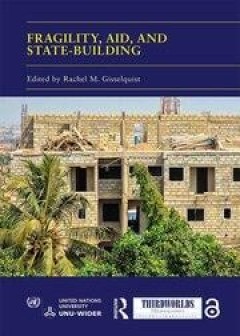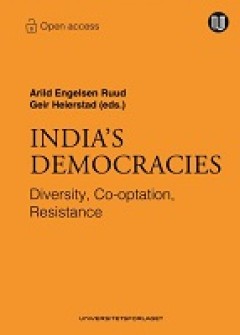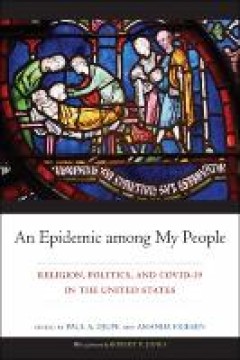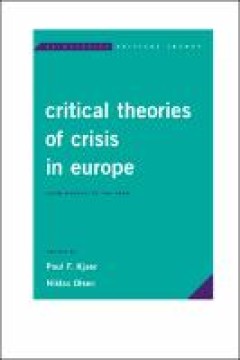Filter by

Africa's soft power : philosophies, political values, foreign policies and cu…
This book investigates the ways in which soft power is used by African countries to help drive global influence. Selecting four of the countries most associated with soft power across the continent, this book delves into the currencies of soft power across the region: from South Africa’s progressive constitution and expanding multinational corporations, to Nigeria’s Nollywood film industry …
- Edition
- -
- ISBN/ISSN
- 9781003176022
- Collation
- -
- Series Title
- -
- Call Number
- -

Fragility, Aid, and State-building: Understanding Diverse Trajectories
Fragile states pose major development and security challenges. Considerable international resources are therefore devoted to state-building and institutional strengthening in fragile states, with generally mixed results. This volume explores how unpacking the concept of fragility and studying its dimensions and forms can help to build policy-relevant understandings of how states become more res…
- Edition
- -
- ISBN/ISSN
- 9781315115344
- Collation
- -
- Series Title
- -
- Call Number
- -

India’s democracies: Diversity, Co-optation, Resistance
This volume is about India’s deep and complex relationship with its chosen form of government. It is an interdisciplinary book with approaches drawn from history, anthropology, sociology, political science and social geography. We believe this volume provides new perspectives on how to approach and analyse the complexity of India’s democracy. The book’s unfortunate publishing history also…
- Edition
- Ed. 1
- ISBN/ISSN
- 9788215026886; 9788215026893
- Collation
- 253
- Series Title
- -
- Call Number
- 320 IND I

Development and implementation of the EU grand strategies: sociological, poli…
This book addresses the challenging and exciting issues of the implementation of the European Union’s grand strategies, with a particular interest in the implementation of the current Agenda 2030 and its Sustainable Development Goals. It provides insight into the impact of this strategic process on some of the current global issues relevant to the European Union, such as the European and glob…
- Edition
- Ed. 1
- ISBN/ISSN
- 9783631894286, 9783631894293
- Collation
- 138
- Series Title
- -
- Call Number
- 320 DEV d

Essays on Political Elites and Violence in Changing Political Orders of Middl…
"This research project addresses the question of how political elites’ behaviour varies when competition among them is heightened. Focusing on changing political orders across Africa and the Middle East, it seeks to understand how political elites facing internal and external challenges manipulate local power structures for political survival purposes, resulting in distinct political trajecto…
- Edition
- Ed. 1
- ISBN/ISSN
- -
- Collation
- 221
- Series Title
- -
- Call Number
- 320 CAR e

An Epidemic among My People Religion, Politics, and COVID-19 in the United S…
The pandemic presented religion as a paradox: faith is often crucial for helping people weather life’s troubles and make difficult decisions, but how can religion continue to deliver these benefits and provide societal structure without social contact? The topical volume, An Epidemic among My People explains how the COVID-19 pandemic stress tested American religious communities and created a …
- Edition
- Ed. 1
- ISBN/ISSN
- 9781439923399, 9781439923405
- Collation
- -
- Series Title
- -
- Call Number
- 200.2 EPI e

Critical Theories of Crises in Europe: From Weimar to the Euro
What is to be learned from the chaotic downfall of the Weimar Republic and the erosion of European liberal statehood in the interwar period vis-a-vis the ongoing Europeancrisis? This book analyses and explains the recurrent emergence of crises in European societies. It asks how previous crises can inform our understanding of the present crisis. The particular perspective advanced is that these …
- Edition
- Ed. 1
- ISBN/ISSN
- 9781783487455
- Collation
- 251
- Series Title
- -
- Call Number
- 320 CRI c

Money Matters: Addressing the Financial Sustainability of Security Sector Reform
Although the financial sustainability of United Nations (UN) support to institutional capacity building in post-conflict contexts may be the least analysed topic on the peacebuilding agenda, understanding the costs of rebuilding and maintaining the security sector should be one of the most important priorities for security sector reform (SSR) practitioners today. Through innovative partnerships…
- Edition
- Ed. 1
- ISBN/ISSN
- 9781911529385
- Collation
- 35
- Series Title
- SSR Papers, 11
- Call Number
- 320 KEA m

The "Democratic Soldier": Comparing Concepts and Practices in Europe
Since the end of the Cold War almost all European countries have reformed their armed forces, focusing on downsizing, internationalization and professionalization. This paper examines how these changes in security sector governance have affected the normative model underlying the militaryâ s relationship to democracy, using the image of the â democratic soldierâ . Drawing on a comparative an…
- Edition
- Ed. 1
- ISBN/ISSN
- 9781911529361
- Collation
- 64
- Series Title
- SSR Papers, 9
- Call Number
- 320 MAN d

Comparative Federalism and Covid-19: Combating the Pandemic
This comprehensive scholarly book on comparative federalism and the Covid-19 pandemic is written by some of the world’s leading federal scholars and national experts. The Covid-19 pandemic presented an unprecedented emergency for countries worldwide, including all those with a federal or hybrid-federal system of government, which account for more than 40 per cent of the world’s population. …
- Edition
- -
- ISBN/ISSN
- 9781000471311
- Collation
- -
- Series Title
- -
- Call Number
- -
 Computer Science, Information & General Works
Computer Science, Information & General Works  Philosophy & Psychology
Philosophy & Psychology  Religion
Religion  Social Sciences
Social Sciences  Language
Language  Pure Science
Pure Science  Applied Sciences
Applied Sciences  Art & Recreation
Art & Recreation  Literature
Literature  History & Geography
History & Geography